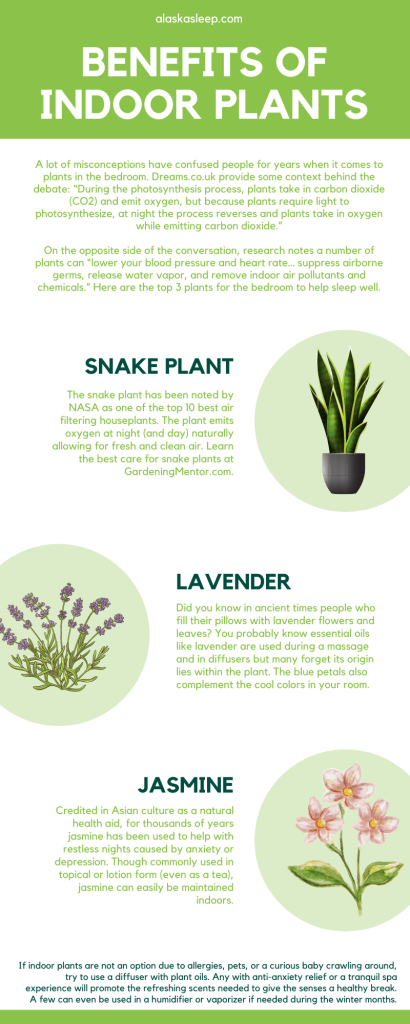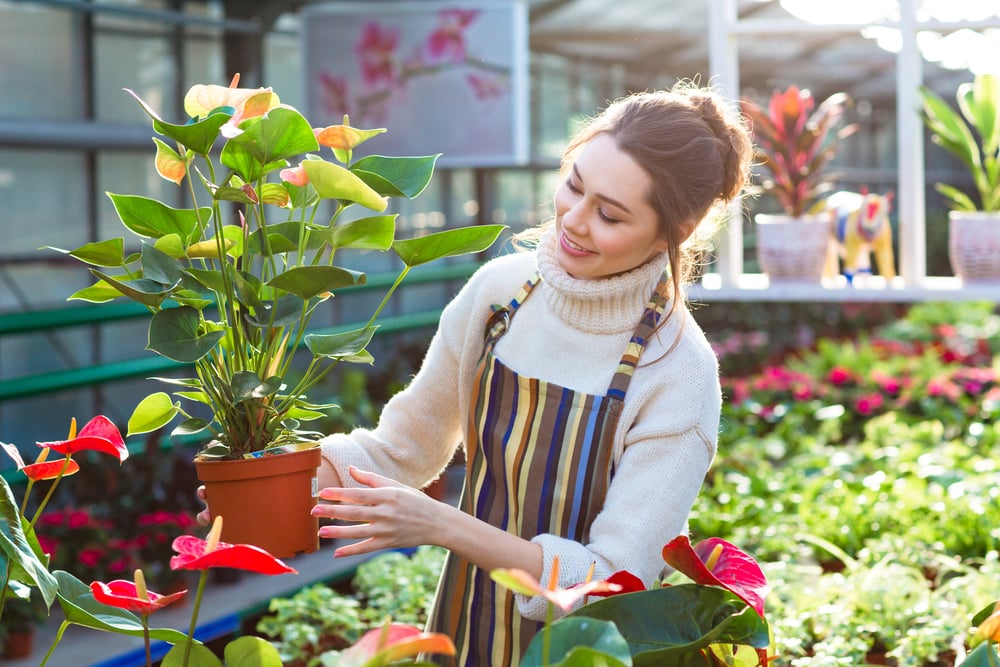Having plants in your bedroom can benefit you in several ways: Fragrant plants, such as jasmine, gardenia, and lavender give off a fragrance that has been shown to calm nerves and help people sleep. … Some plants have been found to absorb toxins from the air such as benzene, trichloroethylene, and formaldehyde.
Having plants in your bedroom can benefit you in many ways:
- Fragrant plants, such as jasmine, gardenia, and lavender give off a fragrance that has been shown to calm nerves and help people sleep.
- Having plants in your room can have a positive effect on your mood and health (see the Columbia University study for seasonal affective disorder). A study from Kansas State University concluded that surgical patients who had plants and flowers in their room had lower blood pressure, ratings of pain, and anxiety than patients in the control group who didn’t have them.
- Some plants emit water vapor. The water vapor can help prevent the mucous membranes of the nose and throat from drying out, leaving a person more susceptible to viruses, bacteria, and allergens.
- Some plants produce negative ions, which are prevalent in waterfalls and after rainstorms. There are air purifiers that produce negative ions that attach themselves to mold spores, bacteria, viruses, and other allergens and reduce the chances of people becoming affected. Large amounts of negative ions, which is ozone, is bad for your health. The FDA requires that indoor medical devices can only produce a maximum of 50 ppb (parts per billion) of ozone, but plants emit way less than this.
- Some plants have been found to absorb toxins from the air such as benzene, trichloroethylene, and formaldehyde. The science that backs this claim isn’t strong and is discussed below.
There’s a myth that sleeping with plants in your bedroom is bad for you. It may be a misunderstanding of how plants respirate. Many plants give off oxygen during the day and carbon dioxide at night. Some have misunderstood that plants produce carbon monoxide, which is lethal in high doses. It could also be misunderstood how much carbon dioxide that plants produce. The amount of carbon dioxide that plants emit at night is far less than a person or pet sleeping in the same bed produces, and therefore not a concern.
Fragrant plants, such as jasmine, gardenia, and lavender give off a fragrance that has been shown to calm nerves and help people sleep. Just choose the right variety to grow them successfully.














